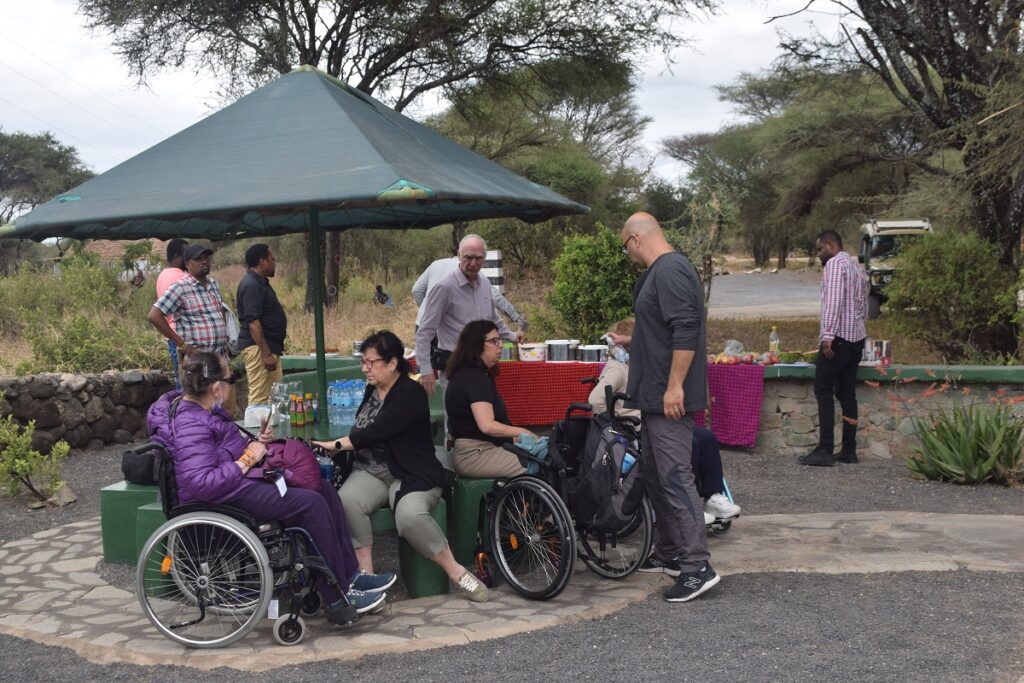Why Tanzania Is Africa’s Most Accessible Destination
Tanzania, often hailed as the “Jewel of East Africa,” stands out as one of the continent’s most accessible and inclusive travel destinations. From its breathtaking landscapes and rich wildlife to its commitment to inclusive tourism, Tanzania offers experiences that cater to a diverse range of travelers, including those with disabilities, seniors, and families.
- Diverse and Inclusive Tourism Offerings
Tanzania’s commitment to accessible tourism is evident in its efforts to make the country’s diverse natural and cultural attractions accessible to travelers with disabilities and other special needs.
- Wheelchair-Accessible Safaris: Tour operators like Joagro Safaris and Kiwoito Africa Safaris offer wheelchair-accessible safari packages, ensuring that travelers with mobility challenges can experience the wonders of the Serengeti, Ngorongoro Crater, and other iconic destinations.
- Inclusive Accommodations: Many lodges and camps have adapted their facilities to cater to guests with disabilities, providing features like ramps, accessible bathrooms, and trained staff to assist with specific needs.
- Robust Infrastructure and Connectivity
Tanzania’s infrastructure supports seamless travel experiences:
- Air Travel: The country boasts 26 airports, including Julius Nyerere International Airport in Dar es Salaam and Kilimanjaro International Airport, facilitating easy access to major tourist destinations.
- Road and Rail Networks: A well-maintained network of roads and railways connects various parts of the country, making overland travel convenient and efficient.
- Maritime Transport: Ferries and boats provide access to islands like Zanzibar, enhancing the country’s appeal as a beach destination.
- Unparalleled Wildlife Experiences
Tanzania offers some of the most authentic and accessible wildlife experiences in Africa:
- Serengeti National Park: Home to the Great Migration, where over 2.5 million wildebeest and zebras traverse the plains, offering spectacular viewing opportunities.
- Ngorongoro Crater: A UNESCO World Heritage Site, this vast volcanic caldera hosts a dense population of wildlife, including the Big Five.
- Tarangire National Park: Known for its large elephant herds and ancient baobab trees, providing unique safari experiences.
- Cultural Richness and Community Engagement
Tanzania’s cultural diversity enhances its accessibility:
- Maasai Villages: Visitors can engage with the Maasai people, learning about their traditions and way of life.
- Swahili Coast: The coastal regions, including Zanzibar, offer insights into Swahili culture, with opportunities to explore historic sites and enjoy local cuisine.
- Community-Based Tourism: Initiatives that involve local communities in tourism activities ensure authentic experiences and support sustainable development.
- Commitment to Sustainable and Inclusive Tourism
Tanzania’s approach to tourism emphasizes sustainability and inclusivity:
- Eco-Friendly Practices: Many tour operators and accommodations implement environmentally friendly practices to preserve the country’s natural beauty.
- Empowerment Programs: Efforts to involve women and marginalized groups in the tourism industry promote inclusivity and economic development.
- Accessible Tourism Initiatives: Ongoing projects aim to improve accessibility in tourist sites, ensuring that all travelers can enjoy Tanzania’s offerings.
- Safety and Stability
Tanzania is recognized for its political stability and safety, making it a reliable destination for travelers:
- Stable Governance: Consistent leadership contributes to a secure environment for tourism.
- Health and Safety Measures: The country has implemented health protocols to ensure the well-being of visitors, including those with specific health needs.
- Affordability and Value
Tanzania offers a range of options to suit different budgets:
- Diverse Accommodations: From luxury lodges to budget-friendly camps, travelers can choose accommodations that fit their financial plans.
- Variety of Packages: Tour operators provide customizable packages, allowing travelers to select experiences that align with their interests and budgets.
- Year-Round Travel Opportunities
Tanzania’s climate and diverse ecosystems make it a year-round destination:
- Dry Season (June to October): Ideal for wildlife viewing, as animals gather around water sources.
- Wet Season (November to May): Lush landscapes and fewer tourists offer a different perspective of the country’s beauty.
- Educational and Volunteer Opportunities
For travelers interested in giving back or learning:
- Volunteer Programs: Opportunities to engage in community development, conservation, and education projects.
- Educational Tours: Programs that focus on wildlife conservation, cultural studies, and environmental education.
- Gastronomic Experiences
Tanzania’s culinary scene adds to its appeal:
- Local Cuisine: Dishes like ugali, nyama choma, and pilau offer a taste of Tanzanian culture.
- Cooking Classes: Some tours include cooking experiences, allowing travelers to learn traditional recipes.
Conclusion
Tanzania’s blend of natural wonders, cultural richness, and commitment to accessibility positions it as Africa’s most inclusive destination. Whether you’re seeking adventure, relaxation, cultural immersion, or a combination of experiences, Tanzania welcomes all travelers with open arms and ensures that everyone can partake in its treasures.

